IAAC – Institute for Advanced Architecture of Catalonia
Global Summer School Program 2024
Online Course: Synchronous & Asynchronous Agenda.
Duration: from the 8th until the 12th July 2024
GSS24 DIGITAL DATA & URBAN ANALYTICS
Urban analytics for participatory design,
collecting and mapping citizen inputs
for data driven design of public space.
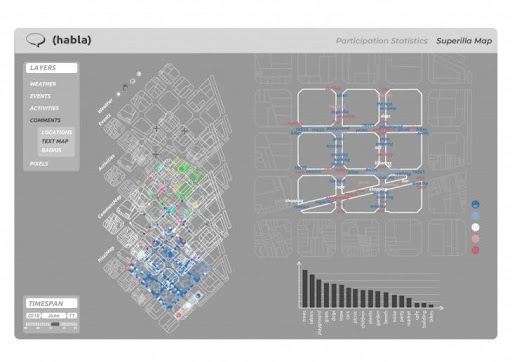
Credits: habla is a project of IAAC, developed at MaCT (Master in City & Technology), 2017-18 by Students: Irene Rodriguez Vara, Saule, Gabriele Petraityte; Faculty: Areti Markopoulou, Starsky Lara, Marco Ingrassia.
Syllabus
Key topics: Digital innovation, participatory design, data analytics, inclusive cities, public space, data driven design.
This year the GSS Digital Data & Urban Analytics module will explore the integration of public participation with digital innovation in urban design, developing urban analytics for participatory design by collecting and mapping citizen inputs for data driven design of public space. It will equip students with the skills to engage communities and apply technology in co-designing inclusive urban spaces.
This is framed in the era of Big Data and new technologies, in which it is essential to use available tools to analyse cities exhaustively. This approach, mixed with the integration of participatory methodologies, helps to understand urban problems accurately, from the perspectives of individuals and collectives, and consider their dynamics. Students will learn how to perform urban analysis, and then develop informed urban analysis that actually addresses the challenges faced by citizens of contemporary cities.
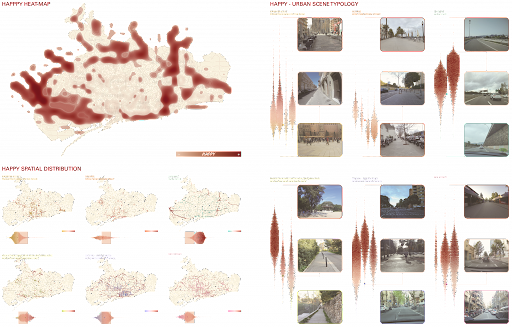
Credits: HEALING CITY is a project of IAAC, developed at MaCT (Master in City & Technology 02) 2019-20 by Students: Luyang Zhang, Faculties: Areti Markopoulou, Mathilde Marengo.
The module will address how urban analysis is based on new sources of data and computational techniques to study cities in depth, contributing to their informed design and planning. And how it allows us to reveal patterns more precisely, test project options and draw conclusions in environmental and socioeconomic terms. In addition, it helps administrations evaluate proposals objectively and establishes quality standards for projects aligned with sustainable urban development.
Through a combination of interactive lectures and mentoring sessions, students will gain knowledge in leveraging digital tools and participatory methods to foster collaborative urban planning processes. Specifically students will acquire knowledge in urban analysis, exploring cases of data application to understand the dynamics of cities. They learn how to use QGIS, a widely used urban analysis and representation software. They will apply this knowledge when analysing an urban area and designing a conceptual proposal at the end of the course.
During the workshop there will also be contributions on behalf of Dr Mathilde Marengo (IAAC ’s Master in City & Technology Director) on more than human cities and computer-aided design approaches to facilitate this; Iacopo Neri (IAAC’s Master in City & Technology Computational Urban Design Lead) on computational logics as not only a platform to develop processes, but rather a platform to critically think (and act) on the way on which we design today; and Maria Isabel da Rocha Lima (IAAC’s Master in City & Technology Coordinator) and Renata Cleaver Malzoni (IAAC’s Maestria en Urbanismo Proximo Coordinator) on participatory approaches and feminist methodologies for inclusive public space.
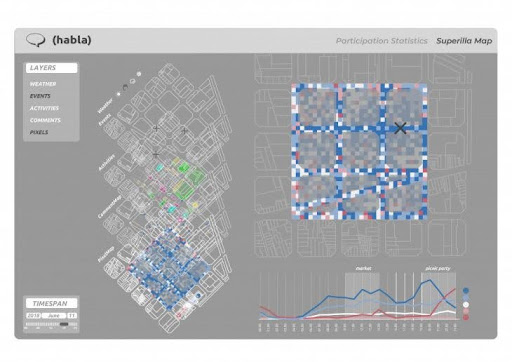
Credits: habla is a project of IAAC, developed at MaCT (Master in City & Technology), 2017-18 by Students: Irene Rodriguez Vara, Saule, Gabriele Petraityte; Faculty: Areti Markopoulou, Starsky Lara, Marco Ingrassia.
This workshop allows students to develop practical skills in urban analysis, combining a solid understanding of participatory design approaches and methodologies. It also prepares participants to face the complex challenges of the current urban environment , understanding the specificity and complexities in relation to different stakeholders, human and non, in public space, enabling them to contribute to a just, innovative and sustainable design for public space.
Learning objectives
At course completion the student will:
- Manipulate and combine data from different data source and data typologies
- Set up a flexible protocol to analyse different urban contexts in the world
- Learn how to creatively represent geospatial data and how to create a web map
Previous Knowledge / Students background requirements
The workshop is open to all applicants with a bachelor degree (or in progress) in any field related to Architecture, Design, Social Sciences, Arts and Engineering. Any skills and understanding of QGIS tools is welcome.
Faculties
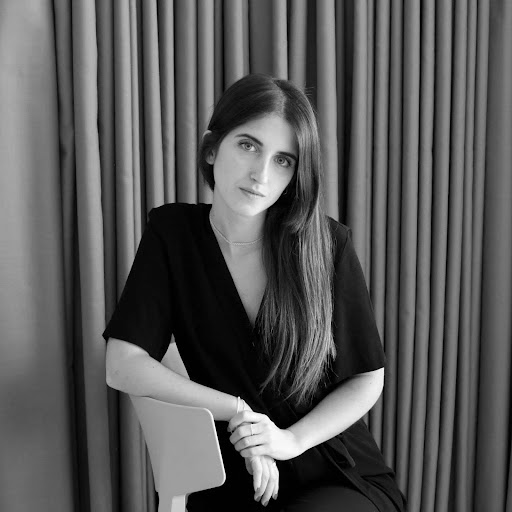
Ana Gallego (she/her) is an architectural, urban designer and researcher at Urban Science Lab at IAAC, carrying out innovative and sustainable projects at different scales. This year she has been awarded as one of the 25 emerging researchers in the field of architecture and urbanism in Europe by Learn, Interact and Networking in Architecture Programme, a European Union program formed by the leading institutions of Architecture and Urbanism in Europe.
Her work has been selected, among other institutions, by the New European Bauhaus, the Mostra di Architettura di Venezia, MODEL. Festival de Arquitecturas and Barcelona Architecture Week. She has also collaborated with different European universities giving lectures on urban design. She is currently collaborating with various European institutions such as the Kosovo Foundation of Architecture, the Timisoara Architecture Biennale, and the Haus Der Architektur Research Lab. She previously worked in different architectural and urban planning firms such as AMB. Metropolitan Area of Barcelona, Miralles Tagliabue EMBT, Sol89 Arquitectos or Pargade Architectes.
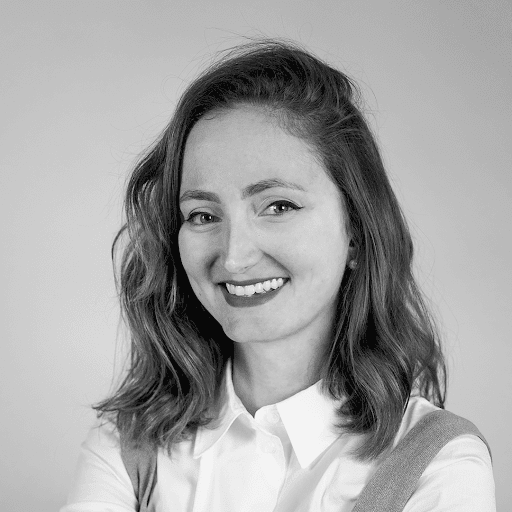
Laura Guimarães (she/her) is a Brazilian architect and urban planner, with a Master’s degree in City & Technology from the Institute for Advanced Architecture of Catalonia. She is currently the manager of the Urban Sciences Lab of IAAC, responsible for coordinating research and educational initiatives on urban design and planning, along with business partnerships and consultancy on urban projects around the world. Laura’s investigations are oriented towards a combined data-driven and human-centered approach to urban development, based on informed decisions through the use of both digital analysis and citizen participation. She has been applying this approach in projects, capacity building events and courses, such as the “Internet of People” Studio in the Master in City & Technology at IAAC. Moreover, her work has been presented in different conferences around the world, such as in the CIVITAS Conference “Mobility Powered by the Youth” (Germany) and the 16th AESOP “Young Academics Conference” (Turkey).
Linkedin
Lecturers
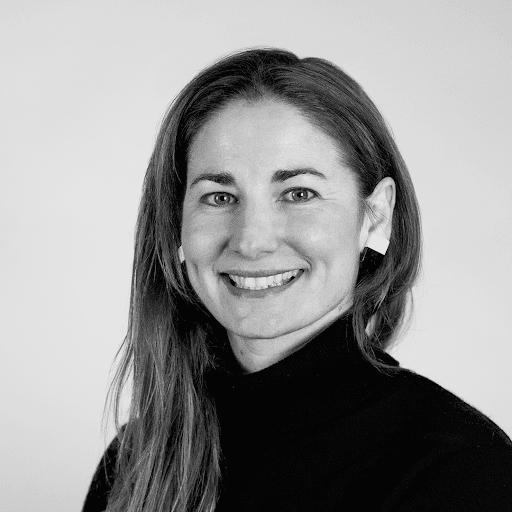
Mathilde Marengo (she/her) is an Australian – French – Italian PhD Architect whose research focuses on the Contemporary Urban Phenomenon, its integration with technology, and its implications on the future of our planet. Within today’s critical environmental, social and economic framework, she investigates the responsibility of designers in answering these challenges through circular and metabolic design.
She is Head of Studies, Co-director of the Master in City & Technology, Faculty and PhD Supervisor at the Institute for Advanced Architecture of Catalonia. Mathilde develops her research at IAAC’s Advanced Architecture Group (AAG), an interdisciplinary research group investigating emerging technologies of information, interaction and manufacturing for the design and transformation of the cities, buildings and public spaces. Within this context, she investigates, designs and experiments with innovative educational formats based on holistic, multi-disciplinary and multi-scalar design approaches, oriented towards materialization, within the AAG agenda of redefining the paradigm of design education in the Information and Experience Age.
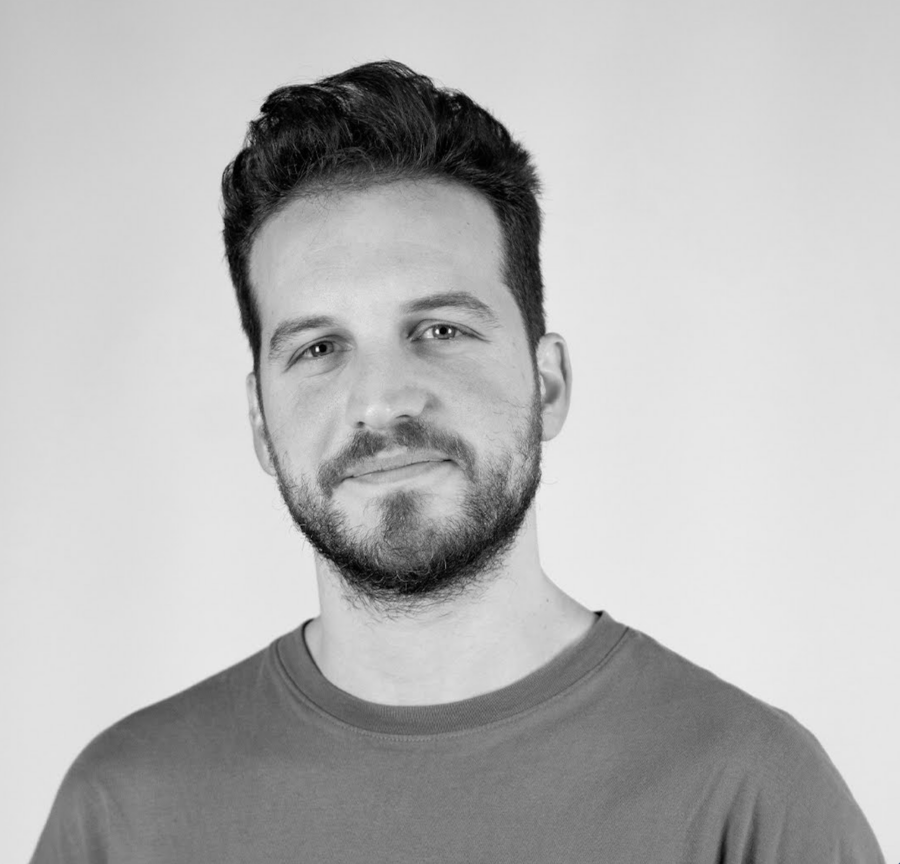
Iacopo Neri (he/him) is the Master in City & Technology’s Urban Computation Lead, his research situated at the intersection between architecture, computer science and urban planning. He holds a Master of Science in Architecture with Distinction at The Polytechnic University of Milan, and attended a Master in City and Technology at the Institute for Advanced Architecture of Catalonia (IAAC, Spain) after presenting a paper about Swarm Intelligences for crowd-based analysis during the Responsive Cities Symposium (2017, Barcelona). He has been involved as a teaching assistant since 2015 at the University of Florence, later, at The Polytechnic University of Milan, and finally at IAAC where he is currently part of the City and Technology computational research team. He also works as a computational designer at External Reference Architecture Bureau, Barcelona.
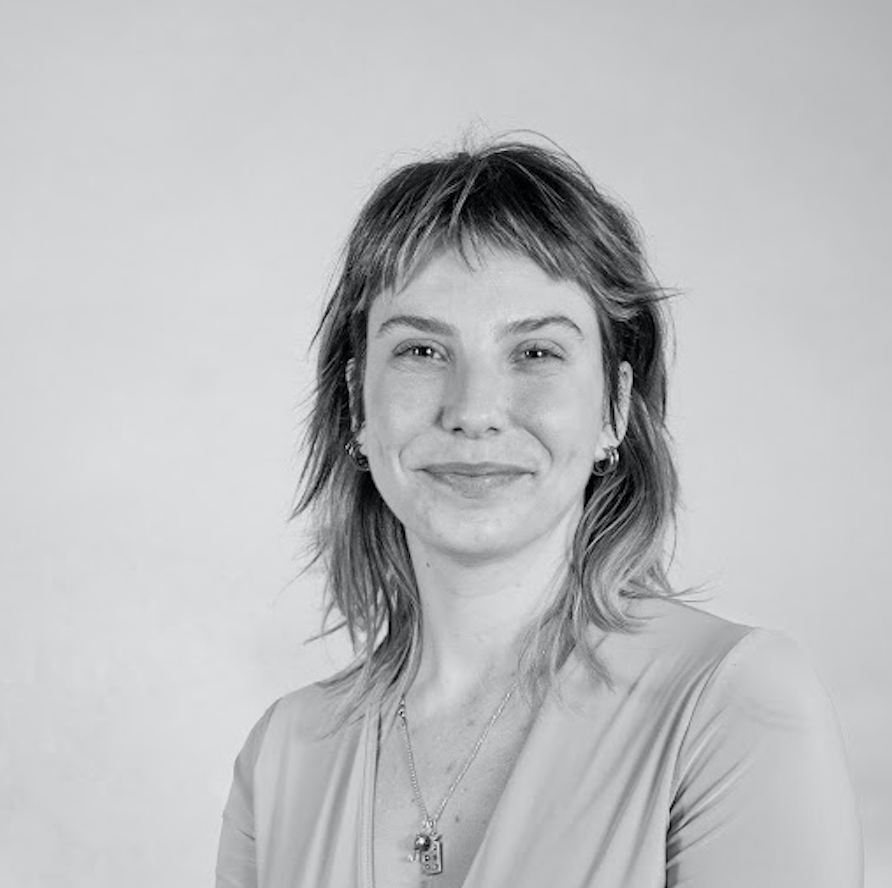
Maria Isabel da Rocha Lima (she/her) is a Brazilian architect, urban strategist and researcher. She is currently the coordinator of MaCT (Master in City & Technology) and researcher at the Urban Sciences Lab. Isabel also holds a Master in Urban Management and Development from IHS, Erasmus University of Rotterdam. She has previously worked in Portugal and Brazil, within her specialty of public participation and engaging workshops on the topics of urban rehabilitation, capacity building, right to the city and sustainable development, either as a moderator, project manager or researcher. She has also worked with IHS as part of the Alumni Board, attending WUF on their behalf and moderating a training event on small-scale initiates. Her research lies on the topic of urban strategies, participatory planning and processes, governance and right to the city.
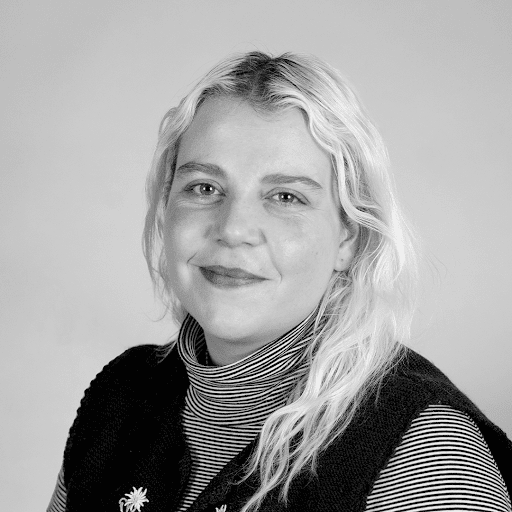
Renata Cleaver Malzoni (she/her) is an urban researcher based in Barcelona, with a master’s degree in Sociology (Urban Studies) from Goldsmiths University of London. She previously worked with NGOs advocating for the rights of people who have migrated to Europe, particularly pregnant women and young adults. Her research is mostly regarding the right to the city, and the importance of decolonizing our understanding of our surroundings.
Currently, she is a collaborator at IAAC’s Urban Sciences Lab and the coordinator of Maestría en Urbanismo Próximo (MaUP), a master in Spanish focused on exploring the challenges of contemporary cities.
WEEKLY AGENDA
Option 1 – Synchronous calendar (Barcelona time – GMT+2)
Recommend to European, African, Asian and Australian participants.
From Monday 8th until Thursday 11th July 2024
Teaching activities will run from 10.00 to 14.00 GMT+2
– 8 hrs of live teaching
– 8 hrs of live mentoring and exercises review
– 1 hr of IAAC summer lecture
– Final GSS diploma certificate ceremony
Option 2 – Asynchronous calendar (America time – GMT-4)
Solution recommended to participants from all the time zones who are looking for a more flexible schedule.
From Monday 8th until Friday 12th July 2024
Live teaching activities will run from 11.00 am to 1.00 pm (GMT-4)
– 8 hrs of recorded teaching
– 8 hrs of live mentoring and exercises review
– 1 hr of IAAC summer lecture
– Final live GSS diploma certificate ceremony
Workshop schedule
A detailed schedule of the workshop will be shared with the participants prior to the workshop’s beginning.
Main tools
Students need to use their laptop and a list of installable links will be sent a few days before the program starts.

